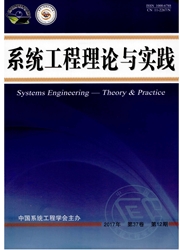

 中文摘要:
中文摘要:
针对工程建设中工期优化问题,构建了立足于工程全生命周期角度的业主与承包商的收益共享谈判模型.设置了谈判双方均具有公平关切、仅业主具有公平关切、仅承包商具有公平关切三种实验情景,研究了主体公平关切程度对谈判可行域、谈判成功结果、谈判效率等方面的影响.实验结果表明:谈判双方的公平关切程度越高,谈判成功的可行域越小;主体适度提高公平关切程度,会导致工期优化幅度较大,但过度关注公平会导致双方成本大幅增长,不利于系统利润增长;主体不同的公平关切程度会对自身收益产生不同影响;双方保持适度公平关切能够提高谈判成功率,缩短谈判周期.
 英文摘要:
英文摘要:
Adopting a life-cycle perspective, this paper focuses on time compression in construction projects, and builds an agent-based model on revenue-sharing negotiation. We design three experimental scenarios: only owner has fairness preference, only contractor has fairness preference, both owner and contractor have fairness preferences. Our aim is to find how agents' fairness preferences impact feasible region of agreements, results of successful negotiations and efficiency in negotiations. Results are as fol- lows: raising agents' fairness preferences will compress the feasible region. When agents raise their fairness preferences properly, it will lead to a significant compression in construction time. However, when agents pay attention to fairness preferences excessively, it will lead to substantial cost growth and it is not con- ducive to growth of profit. Agents' different fairness preferences will take different effects on their profits. Appropriate fairness preferences of agents can improve the success rate of negotiations and shorten the negotiation periods.
 同期刊论文项目
同期刊论文项目
 同项目期刊论文
同项目期刊论文
 Pricing and emission reduction strategy of manufacturer with carbon emission constraints in low carb
Pricing and emission reduction strategy of manufacturer with carbon emission constraints in low carb New product development period and competitive advantage resulting from manufacturing-marketing inte
New product development period and competitive advantage resulting from manufacturing-marketing inte Computational Experiment Study on Selection Mechanism of Project Delivery Method Based on Complex Fa
Computational Experiment Study on Selection Mechanism of Project Delivery Method Based on Complex Fa Acomparative analysis of the antecedents of green purchasing behaviors among youngadults in China an
Acomparative analysis of the antecedents of green purchasing behaviors among youngadults in China an The Comparison Analysis of Total Factor Productivity and Eco-efficiency in China’s Cement Manufactur
The Comparison Analysis of Total Factor Productivity and Eco-efficiency in China’s Cement Manufactur Energy Consumption, Industrial Development and Environmental Pollution: the Case of China’s 36 Indus
Energy Consumption, Industrial Development and Environmental Pollution: the Case of China’s 36 Indus A decision-making rule for modeling travelers'; route choice behavior based on cumulative prospect t
A decision-making rule for modeling travelers'; route choice behavior based on cumulative prospect t A prospect-based user equilibrium model with endogenous reference points and its application in cong
A prospect-based user equilibrium model with endogenous reference points and its application in cong 期刊信息
期刊信息
